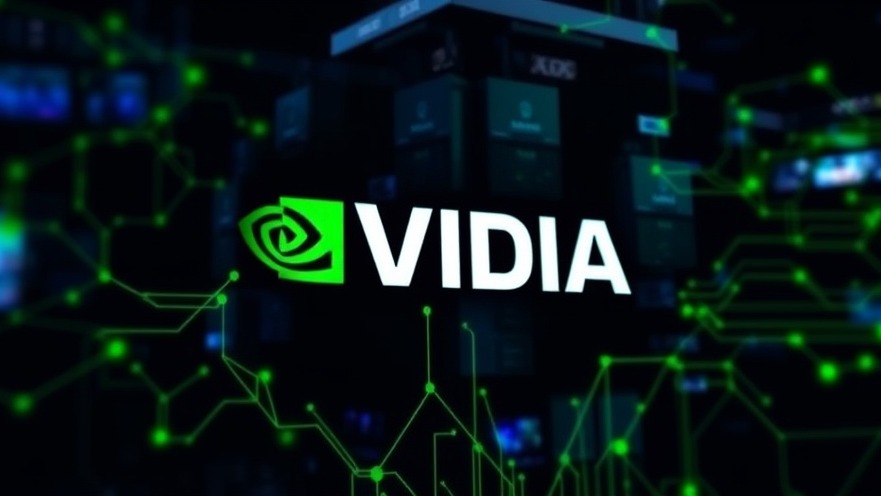
Nvidia's Surge in Startup Investments: An Overview
As technology evolves at breakneck speed, companies like Nvidia are positioning themselves at the forefront of innovation. With its current valuation soaring at $4.3 trillion, Nvidia has become a powerhouse not only in chip design but also in venture capital. The company has made at least 42 investments in startups this year—an increase from the previous year—through its NVentures arm. This trend sheds light on Nvidia's ambitious strategy to cultivate transformative technologies, expanding its influence across various sectors.
Why Hard Tech? The Focus on Innovative Solutions
Nvidia’s investments reflect a tendency towards “hard tech,” which aims to tackle longstanding challenges via cutting-edge expertise and technology. This is evident in significant funding rounds such as the $863 million Series B investment for Commonwealth Fusion Systems, aimed at revolutionizing energy production through fusion power. Such investments are not merely financial transactions; they symbolize Nvidia's commitment to pushing boundaries in complex engineering and scientific problems.
Prominent Investments: Highlights from 2025
This year, Nvidia has made notable moves in various fields, including quantum computing and artificial intelligence. For example, the $600 million round for Quantinuum showcases Nvidia's interest in quantum technologies that could redefine data processing and machine learning. Similarly, recent investments in Mistral AI highlight the company's dedication to fostering innovations in generative AI, proving that Nvidia is keen on nurturing ventures that can reshape the digital landscape.
The Role of NVentures: Navigating Startup Ecosystems
The NVentures arm is designed to not only invest but also collaborate with emerging companies. Through programs like the Nvidia Inception program for AI startups, the company helps incubate nascent technologies and ideas from the ground up. While Nvidia occasionally takes the lead role in funding rounds, it tends to support companies collaboratively. In 2025, Nvidia led five funding rounds, including a $300 million Series D for AI21 Labs, showing its selective yet impactful involvement in startup ecosystems.
Funding Strategy: A Stake in the Future of AI
Examining Nvidia’s funding strategy reveals that the company is focused on securing stakes in businesses likely to transform the future of artificial intelligence. The startup landscape boasts numerous collaborations with AI titans like OpenAI and Databricks, which aligns with its vision of becoming integral to the evolving AI infrastructure. These investments emphasize Nvidia's dual mission: supporting the burgeoning AI field while addressing practical power generation challenges associated with AI applications.
The Broader Implications for Small Businesses
Nvidia's burgeoning investment activity isn't just significant for the tech giants; it has vital implications for small businesses looking to leverage AI tools. With the increasing availability of advanced technologies, small enterprises can aim to integrate sophisticated AI solutions to enhance operations and decision-making processes. Companies that stay informed about these investments can identify promising tools and platforms that Nvidia's funded startups offer, benefiting from developments that may soon permeate their markets.
Final Thoughts: Navigating the Future of AI and Tech
As Nvidia continues its path of aggressive investment in startups, examining its funding strategies reveals trends that can shape the technologies available to small businesses soon. With the resources, expertise, and collaborations initiated by Nvidia, opportunities abound for entrepreneurs who are willing to explore innovative solutions. By keeping an eye on Nvidia's investments and the evolving landscape, small business owners can position themselves advantageously in this rapidly changing world.
Entrepreneurs and small business owners keen to understand how to leverage AI tools for their operations should stay connected with trends initiated by heavyweights like Nvidia. By actively exploring viable options and strategies, they can harness technology advancements that could redefine their industries.
 Add Row
Add Row  Add
Add 




Write A Comment